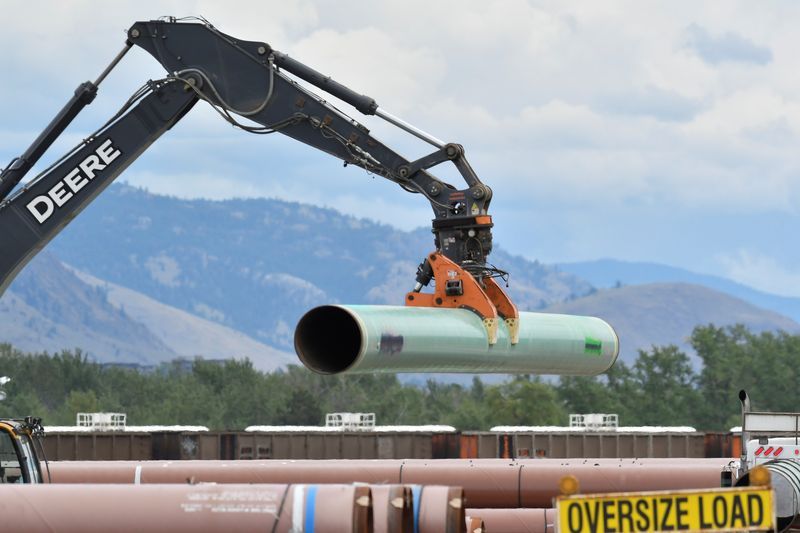
© Reuters. A pipe yard servicing government-owned oil pipeline operator Trans Mountain is seen in Kamloops, British Columbia, Canada June 7, 2021. REUTERS/Jennifer Gauthier/File Photo
CNQ
+0.72%
Add to/Remove from Watchlist
Add to Watchlist
Add Position
Position added successfully to:
Please name your holdings portfolio
Type:
BUY
SELL
Date:
Amount:
Price
Point Value:
Leverage:
1:1
1:10
1:25
1:50
1:100
1:200
1:400
1:500
1:1000
Commission:
Create New Watchlist
Create
Create a new holdings portfolio
Add
Create
+ Add another position
Close
CVE
+0.65%
Add to/Remove from Watchlist
Add to Watchlist
Add Position
Position added successfully to:
Please name your holdings portfolio
Type:
BUY
SELL
Date:
Amount:
Price
Point Value:
Leverage:
1:1
1:10
1:25
1:50
1:100
1:200
1:400
1:500
1:1000
Commission:
Create New Watchlist
Create
Create a new holdings portfolio
Add
Create
+ Add another position
Close
By Nia Williams
(Reuters) – The Canada Energy Regulator (CER) on Thursday approved preliminary interim tolls for the expanded Trans Mountain pipeline system, allowing the project to begin charging for shipping services once operations start.
The interim benchmark toll is set at $11.46 per barrel and applies to shippers with a 15-year contract transporting under 75,000 barrels per day (bpd) from Edmonton to Burnaby. Other tolls will vary by path, length of contract and volume commitment, the CER said.
Trans Mountain applied in June for a base toll of $11 to $12 a barrel, depending on the type of crude shipped and its destination, but was met with opposition from a number of contracted shippers including Canadian Natural (NYSE:CNQ) Resources Ltd and Cenovus Energy (NYSE:CVE), who argued tolls were too high.
The newly approved interim benchmark toll consists of a fixed amount of $10.88 per barrel and a variable portion of $0.58. The fixed amount is nearly double what Trans Mountain estimated it would be in 2017, as a result of ballooning construction costs.
The 590,000 bpd expansion project will nearly triple the flow of Canadian crude to the Pacific coast, but is expected to cost C$30.9 billion ($22.79 billion), more than four times its original budget.
($1 = 1.3558 Canadian dollars)
Source: Investing.com




























